Filter by
Found 12368 from your keywords: subject="Generating living the...
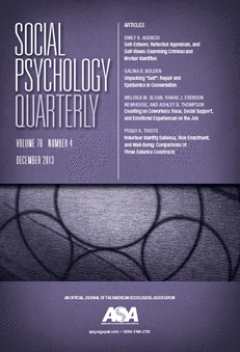
Social Psychology Quarterly, Volume 77, Number 1, March 2014
- Edition
- -
- ISBN/ISSN
- 0190-2725
- Collation
- -
- Series Title
- -
- Call Number
- -
- Edition
- -
- ISBN/ISSN
- 0190-2725
- Collation
- -
- Series Title
- -
- Call Number
- -
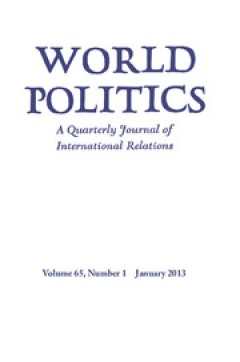
World Politics, Volume 66, Number 1, January 2014
- Edition
- -
- ISBN/ISSN
- 0043-8871
- Collation
- -
- Series Title
- -
- Call Number
- -
- Edition
- -
- ISBN/ISSN
- 0043-8871
- Collation
- -
- Series Title
- -
- Call Number
- -
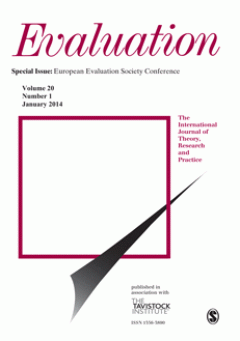
Evaluation, Volume 20, Number 1, January 2014
- Edition
- -
- ISBN/ISSN
- 1356-3890
- Collation
- -
- Series Title
- -
- Call Number
- -
- Edition
- -
- ISBN/ISSN
- 1356-3890
- Collation
- -
- Series Title
- -
- Call Number
- -
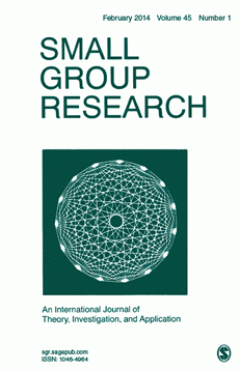
Small Group Research, Volume 45, Number 1, February 2014
- Edition
- -
- ISBN/ISSN
- 1046-4964
- Collation
- -
- Series Title
- -
- Call Number
- -
- Edition
- -
- ISBN/ISSN
- 1046-4964
- Collation
- -
- Series Title
- -
- Call Number
- -
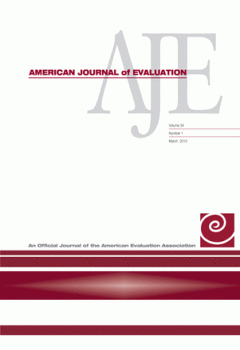
American Journal of Evaluation , Volume 35, Number 1 March 2014
- Edition
- -
- ISBN/ISSN
- 1098-2140
- Collation
- -
- Series Title
- -
- Call Number
- -
- Edition
- -
- ISBN/ISSN
- 1098-2140
- Collation
- -
- Series Title
- -
- Call Number
- -

Gender & Society, Volume 28, Number 1, February 2014
- Edition
- -
- ISBN/ISSN
- 0891-2432
- Collation
- -
- Series Title
- -
- Call Number
- -
- Edition
- -
- ISBN/ISSN
- 0891-2432
- Collation
- -
- Series Title
- -
- Call Number
- -
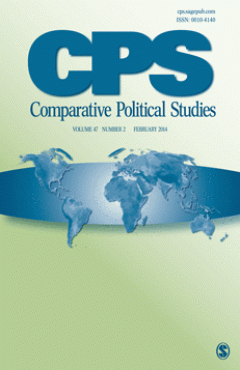
Comparative Political Studies, Volume 47, Number 5, April 2014
- Edition
- -
- ISBN/ISSN
- 0010-4140
- Collation
- -
- Series Title
- -
- Call Number
- -
- Edition
- -
- ISBN/ISSN
- 0010-4140
- Collation
- -
- Series Title
- -
- Call Number
- -

Comparative Political Studies, Volume 47, Number 3, March 2014 (special issue)
- Edition
- -
- ISBN/ISSN
- 0010-4140
- Collation
- -
- Series Title
- -
- Call Number
- -
- Edition
- -
- ISBN/ISSN
- 0010-4140
- Collation
- -
- Series Title
- -
- Call Number
- -

Comparative Political Studies, Volume 47, Number 4, March 2014
- Edition
- -
- ISBN/ISSN
- 0010-4140
- Collation
- -
- Series Title
- -
- Call Number
- -
- Edition
- -
- ISBN/ISSN
- 0010-4140
- Collation
- -
- Series Title
- -
- Call Number
- -

Comparative Political Studies, Volume 47, Number 2, February 2014
- Edition
- -
- ISBN/ISSN
- 0010-4140
- Collation
- -
- Series Title
- -
- Call Number
- -
- Edition
- -
- ISBN/ISSN
- 0010-4140
- Collation
- -
- Series Title
- -
- Call Number
- -

Comparative Political Studies, Volume 47, Number 1, January 2014
- Edition
- -
- ISBN/ISSN
- 0010-4140
- Collation
- -
- Series Title
- -
- Call Number
- -
- Edition
- -
- ISBN/ISSN
- 0010-4140
- Collation
- -
- Series Title
- -
- Call Number
- -
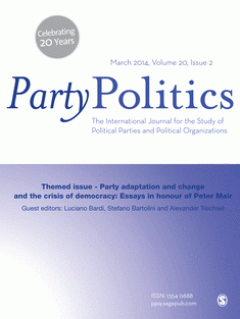
Party Politics, Volume 20 Issue 1, January 2014
- Edition
- -
- ISBN/ISSN
- 1354-0688
- Collation
- -
- Series Title
- -
- Call Number
- -
- Edition
- -
- ISBN/ISSN
- 1354-0688
- Collation
- -
- Series Title
- -
- Call Number
- -
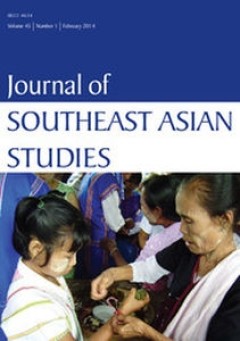
Journal of Southeast Asian Studies, Volume 45, Number 1, January 2014
- Edition
- -
- ISBN/ISSN
- 0022-634
- Collation
- -
- Series Title
- -
- Call Number
- -
- Edition
- -
- ISBN/ISSN
- 0022-634
- Collation
- -
- Series Title
- -
- Call Number
- -
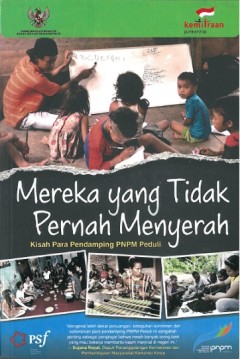
Mereka yang tidak pernah menyerah: kisah para pendamping PNPM Peduli
- Edition
- -
- ISBN/ISSN
- 978-602-1616-05-5
- Collation
- xxxv, 237p.; 21 cm
- Series Title
- -
- Call Number
- 362.5 ARI m
- Edition
- -
- ISBN/ISSN
- 978-602-1616-05-5
- Collation
- xxxv, 237p.; 21 cm
- Series Title
- -
- Call Number
- 362.5 ARI m
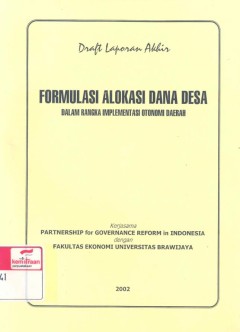
Formulasi alokasi dana desa dalam rangka implementasi otonomi daerah: draft l…
- Edition
- -
- ISBN/ISSN
- -
- Collation
- irrg p.; 28 cm
- Series Title
- -
- Call Number
- 336.41, PAR, f
- Edition
- -
- ISBN/ISSN
- -
- Collation
- irrg p.; 28 cm
- Series Title
- -
- Call Number
- 336.41, PAR, f
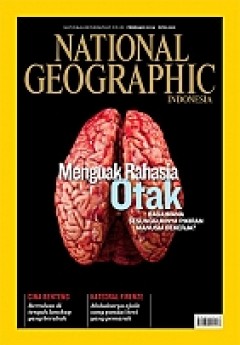
National Geographic Indonesia, Februari 2014 (Menguak rahasia otak)
- Edition
- -
- ISBN/ISSN
- -
- Collation
- -
- Series Title
- -
- Call Number
- -
- Edition
- -
- ISBN/ISSN
- -
- Collation
- -
- Series Title
- -
- Call Number
- -
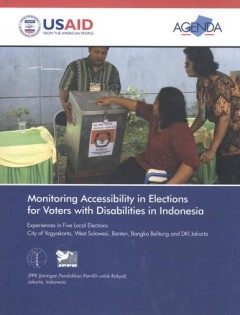
Monitoring Accessibility in Elections for Voters with Disabilities in Indones…
- Edition
- -
- ISBN/ISSN
- -
- Collation
- 107p.; 25 cm
- Series Title
- -
- Call Number
- 324 JAR m
- Edition
- -
- ISBN/ISSN
- -
- Collation
- 107p.; 25 cm
- Series Title
- -
- Call Number
- 324 JAR m
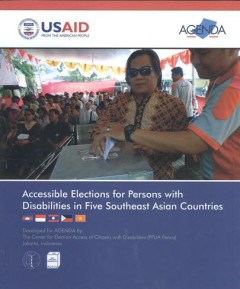
Accessible Elections for Persons with Disabilities in Five Southeast Asian Co…
- Edition
- -
- ISBN/ISSN
- -
- Collation
- 142p.; 25 cm
- Series Title
- -
- Call Number
- 324 IRW a
- Edition
- -
- ISBN/ISSN
- -
- Collation
- 142p.; 25 cm
- Series Title
- -
- Call Number
- 324 IRW a
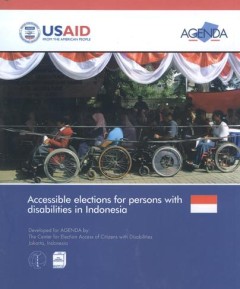
Accessible Elections for Persons with Disabilities in Indonesia
- Edition
- -
- ISBN/ISSN
- -
- Collation
- 117p.; 25 cm
- Series Title
- -
- Call Number
- 324 IRW a
- Edition
- -
- ISBN/ISSN
- -
- Collation
- 117p.; 25 cm
- Series Title
- -
- Call Number
- 324 IRW a
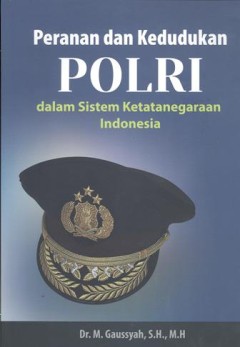
Peranan dan Kedudukan Polri dalam sistem ketatanegaraan Indonesia
- Edition
- 1st print
- ISBN/ISSN
- 978-602-1616-04-8
- Collation
- vi, 122p.; 25 cm
- Series Title
- -
- Call Number
- 363.2 GAU p
- Edition
- 1st print
- ISBN/ISSN
- 978-602-1616-04-8
- Collation
- vi, 122p.; 25 cm
- Series Title
- -
- Call Number
- 363.2 GAU p
 Computer Science, Information & General Works
Computer Science, Information & General Works  Philosophy & Psychology
Philosophy & Psychology  Religion
Religion  Social Sciences
Social Sciences  Language
Language  Pure Science
Pure Science  Applied Sciences
Applied Sciences  Art & Recreation
Art & Recreation  Literature
Literature  History & Geography
History & Geography